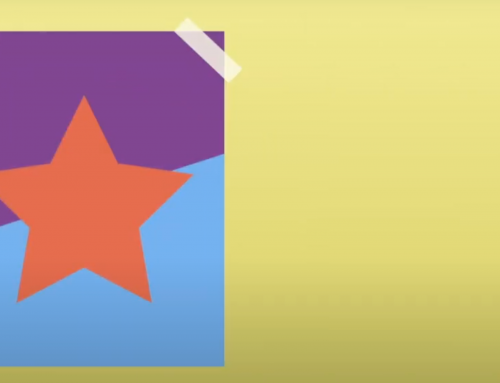This evening my daughters and I were out with the neighbors enjoying a breezy, comfortable Texas breeze. While we adults were talking in the driveway, my kids were stacking and counting rocks in one of the driveways.
I reminded them that rocks stay on the ground and kept part of one eye on them to make sure an accident did not happen.
And then it did anyway.
As the girls were putting the rocks back into the neighbors yard, Katie hurled one and it slammed into the back of Sarah’s head.
I let a curse word slip, raced to my 3 year old who had her mouth open but no noise coming out, and grabbed her into my arms before the first, horrible, scream escaped.
My very first thought after making sure there was no blood was the possibility that she could have a concussion. I always worry about concussions with my kids. A year or so ago, I saw a report on the news that said that most children have an average of 4 concussions in their childhood. And most adults do not even recognize them. I don’t know if that is really true, but it certainly turned on my ‘momdar’ to concussions.
Since that report, even the slightest bump has me checking their eyes for dilation, watching for lethargy, or any other change to them that might be a sign that their brain was banged around their skull enough to possibly change its chemistry.
We are adamant that our kids are always buckled into their car seats no matter how short the trip. If not, slamming on my brakes can cause a concussion – or worse – in my child.
We make our children wear helmets when they ride bikes, scooters, and even the small Barbie 4- wheeler that we have.
And we always had gates at the top and bottom of our stairs to prevent a fall.
Because if it is that common in children, I want mine to avoid being in with the statistic if I can.
We have all seen the news stories and watched the Football games where even people who are ‘protected’ head to toe can fall victim to concussions.
According to the Centers for Disease Control and Prevention’s (CDC) each year, traumatic brain injuries contribute to a substantial number of deaths and cases of permanent disability. Data shows that, on average, approximately 1.7 million people die, are hospitalized, or are seen in an emergency department for a traumatic brain injury annually. Almost half a million emergency department visits for TBI that occur each year are among children aged 0 to 14 years.
It is pertinent that all parents, coaches, school nurses, and anyone else who is around childhood sports, play areas, and providing child care, knows the CDC’S 4 – step Head’s Up Action Plan to protect children should a concussion occur.
1. Keep your teen out of play. If your child or teen has a concussion, her/his brain needs time to heal. Don’t let your child or teen return to play the day of the injury and until a health care professional, experienced in evaluating for concussion, says he or she is symptom-free and it’s OK to return to play. A repeat concussion that occurs before the brain recovers from the first—usually within a short period of time (hours, days, or weeks)—can slow recovery or increase the likelihood of having long-term problems. In rare cases, repeat concussions can result in edema (brain swelling), permanent brain damage, and even death.
2. Seek medical attention right away. A health care professional experienced in evaluating for concussion will be able to decide how serious the concussion is and when it is safe for your child or teen to return to sports.
3. Teach your child or teen that it’s not smart to play with a concussion. Rest is key after a concussion. Sometimes athletes wrongly believe that it shows strength and courage to play injured. Discourage others from pressuring injured athletes to play. Don’t let your child or teen convince you that s/he’s “just fine.”
4. Tell all of your child or teen’s coaches and the school nurse about ANY concussion. Coaches, school nurses, and other school staff should know if your child or teen has ever had a concussion. Your child or teen may need to limit activities while s/he is recovering from a concussion. Things such as studying, driving, working on a computer, playing video games, or exercising may cause concussion symptoms to reappear or get worse. Talk to your health care professional, as well as your child or teen’s coaches, school nurse, and teachers. If needed, they can help adjust your child or teen’s school activities during her/his recovery.
In addition to this, the Heads Up campaign includes tailored educational materials and messages developed for specific audiences, such as:
- Health Care Professionals:
- Sports Coaches and Administrators:
- School Professionals:
To learn more about the Heads Up initiatives and to order your own materials, visit http://www.cdc.gov/concussion.
I invite parents, coaches, and athletes to share their stories or ask CDC questions at www.facebook.com/cdcheadsup.
Sarah is fine after the rock hit her head tonight. But I let her stay up and on the couch with me just in case there was a delayed reaction anyway. And as soon as she was tucked safely into her bed, I ran to my computer to share this information with you. A post I probably would not have written were it not for tonights events.
Funny how it works out that way sometimes!
And if even one person recognizes a concussion and steps up to protect a young child or teen from hurting themselves further, that is just a bonus for me!
**I wrote this blog post while participating in a SocialMoms blogging program for which I may receive a thank you kit.” For more information on how you can participate, click here!**







Newest GFC follower through the Thursday blog hop
http://40plussinglebbw.blogspot.com/
I am coming to see you Denise!!
Your newest follower from bloghop!
http://beyondautism.blogspot.com/
As an adult, I can remember back to my childhood and I recieved several concussions. No one thought anything of them and I had no idea that they could have altered things myself.
Your newest follower!
http://beyondautism.blogspot.com/
I know! I feel off my bike once and slammed the back of my head. I knocked myself cold out. I was light headed and groggy but my parents just watched me. A concussion was never a concern! Amazing what awareness will do!! Welcome, I am on my way to see you! :)
Hope you are all okay with the weather across the south. Great post–more people need to really be aware of the dangers of head injuries and concussions. I am glad I know more about it now and I always make my kids (and hubs and I) wear helmets when biking.
We are fine! Not a drop of rain but enjoying a wonderful, breezy day. We are so concerned for our more nothern southerners though!
I am glad this post was helpful! I debated on doing it until my daughter got hit. Now I am really glad I did!
Thank you!!
Thanks for this blog! I have 2 boys that play football and they do an impact test at our school as a requirement before they play for the year! I appreciate the info! I am a new follower from the Thursday Blog Hop! Check my newer blog out if you get a chance!
http://onewomanjuggler.blogspot.com/
I am so glad you enjoyed it! I hope you get to avoid this in your boys! I am on my way to see you!
The fear that all parents live with. Im as newrotic as you are when it comes to things like this.
At least you’re a mother who understands. My mother hit me in the head so many times (and my father too hit me so hard I feinted), that I think terribly and have had multiple concussions. I have been dealing with blurry vision, exhaustion, and basically hell for five months now, during which time I have been constantly reinjuring my brain over and over again. Anyway, I wish you could tell my mother how wrong it is to hit a 19 year old in the head.